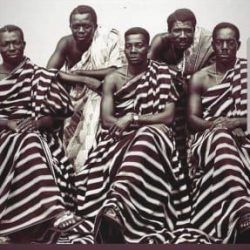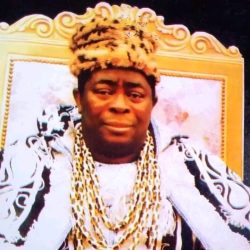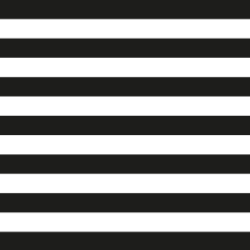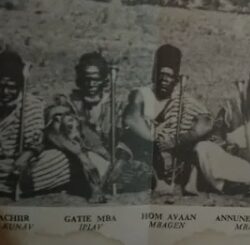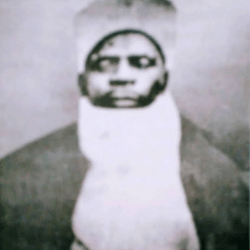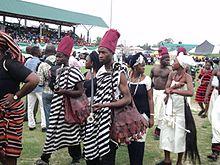On 8 January 1900, near Akaanga on the border of Tivland, the British telegraph crew working on the construction of a telegrah line to Lokoja was confronted by a group of Tiv farmers from the Ihyarev Clan who were perhaps anxious about the fate of their farmlands. Indeed, the farmers were bitterly opposed to the telegraph system because it ran through their farms, destroying their crops. This clash of interests had significant consequences on the Tiv -British relations.
Captain Carrol the officer commanding the escort detachment of the telegraph party, hurriedly assembled one hundred West African Frontier Force (W.A.F.F) riffle men under his command. He attacked and overpowered the local Tiv farmers without much difficulty. The farmers withdrew into the immediate neighbourhood to mobilize their kinsmen. Notable fighters were identified and
recruited.

The counter attack was brutally successful as the only maxim gun the British brought with them jammed, several WAFF British soldiers were killed and a number were wounded.
The British lost 2 senior officers the following day and had to retreat to a friendly Arago village in Akaanga.
The British returned in a counter attack two weeks later with reinforcements from Ibi and Lokoja. Four hundred men, six maxim guns and artillery under the command of Colonel Lowry-Cole was promptly dispatched to Tivland.
The political implications of this major encounter were not lost on the British.
Hence a political officer in the person of Major Burdon was sent along with the soldiers. He had hoped negotiate with the Tiv to surrender but since he had little or no influence with the Tiv, his negotiations did not convey the desired effect. The few youngsters who took him seriously had no standing in the council of elders.
One month of fighting between February and March produced no decisive victory on either side. The Tiv simply resorted to guerrilla tactics thereby frustrating all efforts of the W AFF expeditionary force.
By the end of March, the rainy season had set in and the campaign had to be abandoned with the Tiv securing victory. What is significant, however, is that the Tiv-British clash had brought the construction of the telegraph line to a complete halt, and Lugard was forced to establish a garrison at Akaanga to protect the partially completed line.
References
Political Centralization and Transformation of Tiv Society,.1900-1965 ‘ by Saawua Gabriel Nyityo B.A., M.Sc. (Ibadan) A Thesis in the Department of History submitted to the Faculty of Arts in partial fulfilment of the requirements for the degree of DOCTOR OF PHILOSOPHY University of Ibadan August 2003
Dorward, D.C., 1974, “Ethnography and Administration: A Study of Anglo-Tiv Working-Misunderstanding “, in Journal of African History Vol. XV, pp. 457-478.
Dorward, D.C., 1975, “An Unknown Nigerian Export: Tiv Beniseed Production, 1900-1960”. In Journal of African History Vol. XVI, pp. 431-459.


